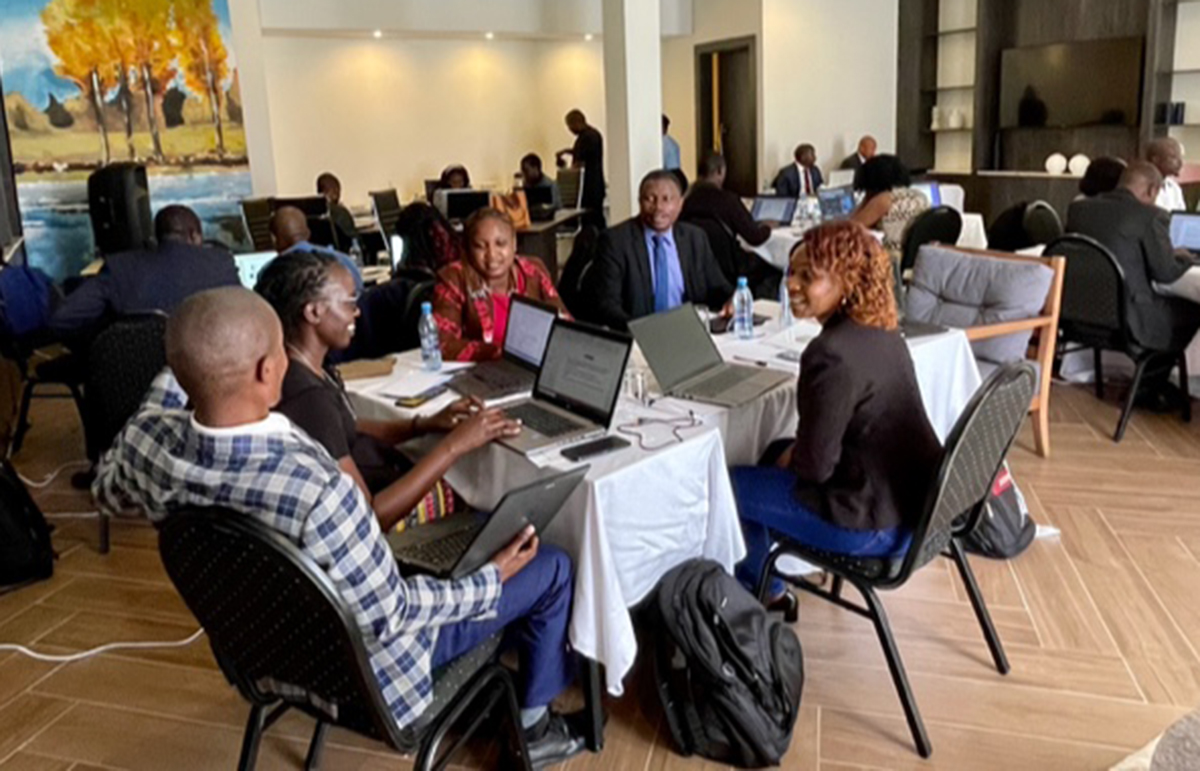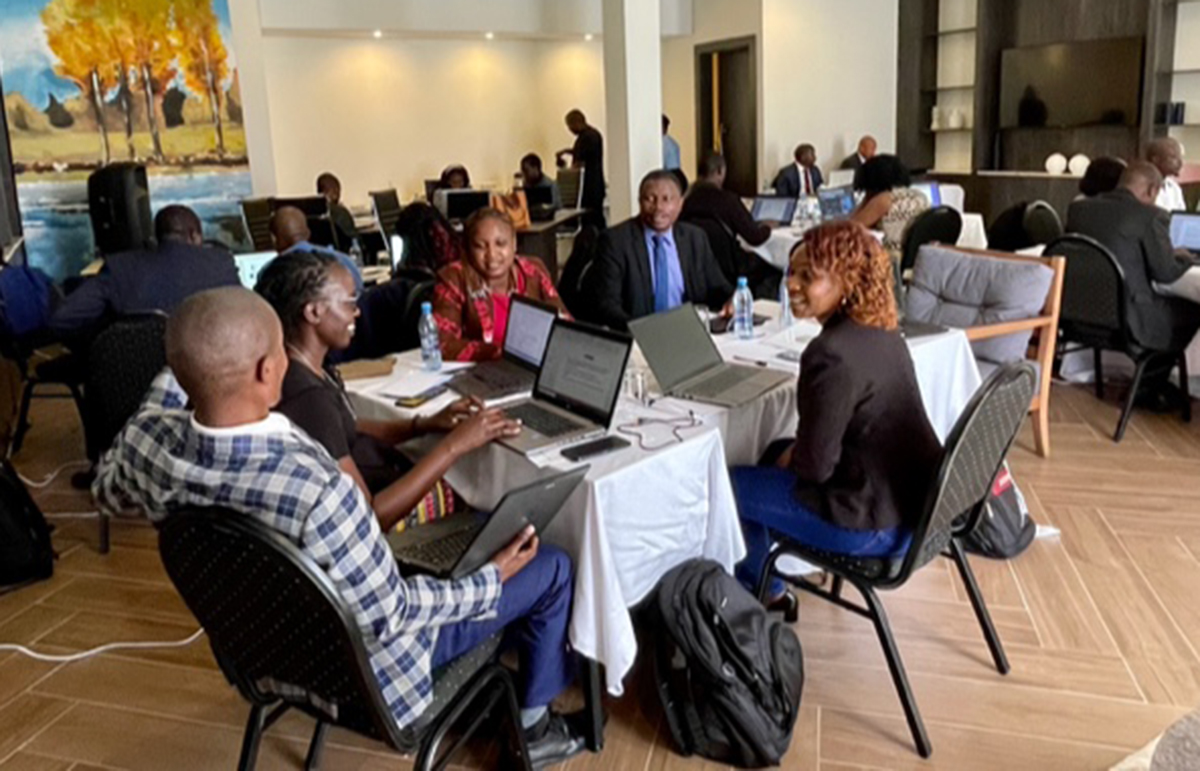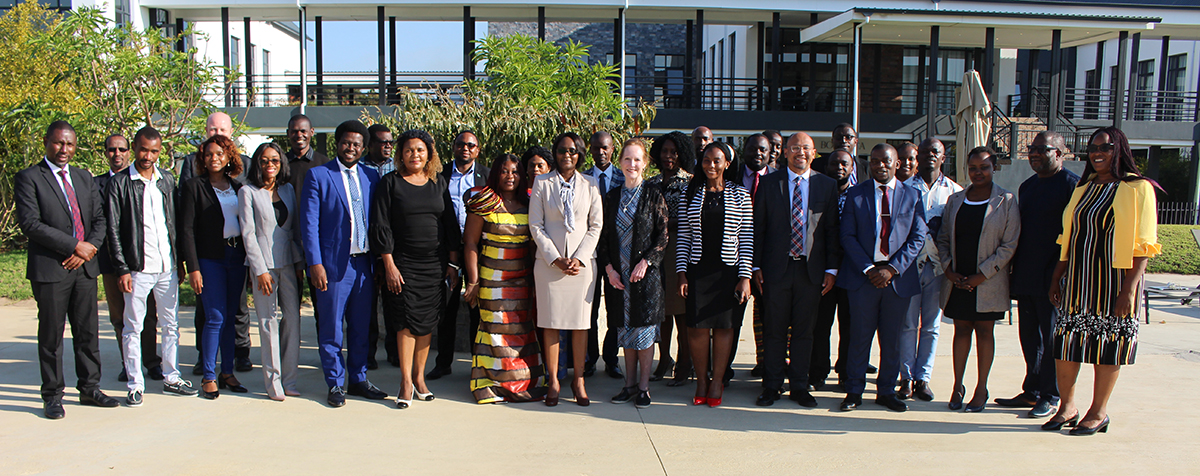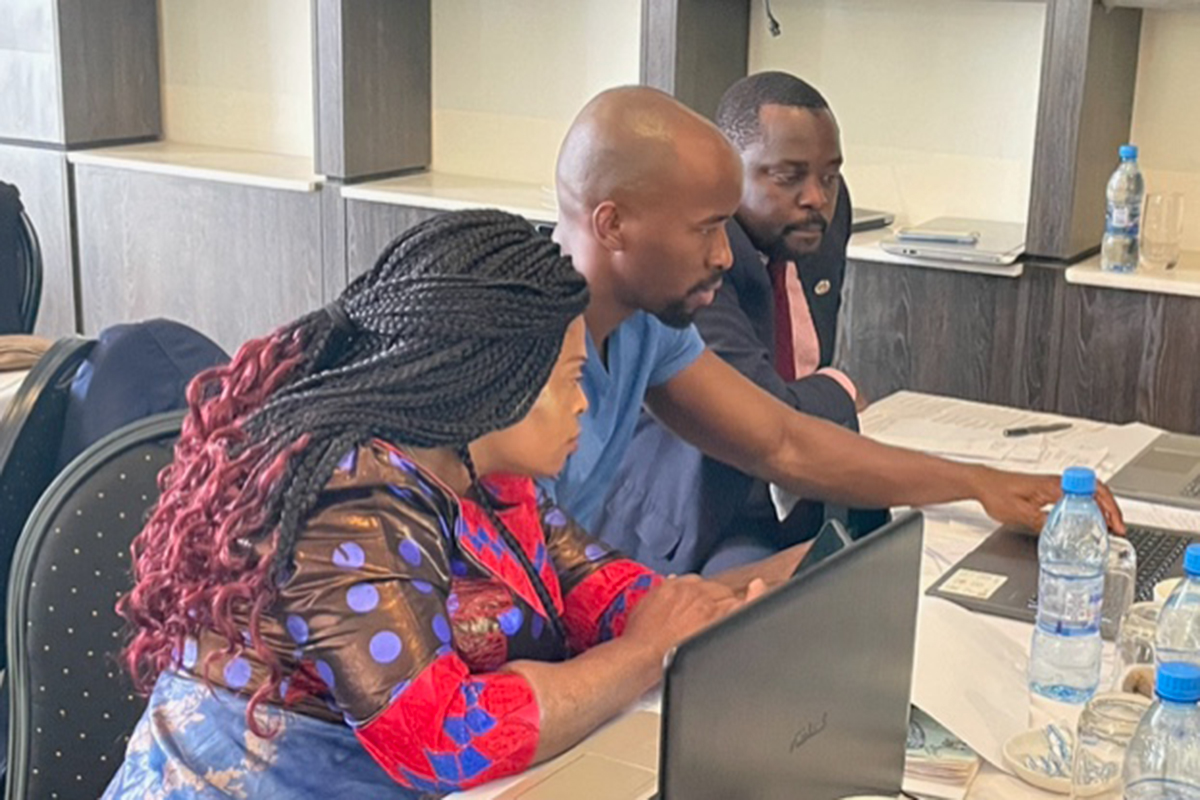Zambia hosts first ICAR training programme on non-conviction based forfeiture

Anti-corruption and asset recovery specialists in Kenya, Sierra Leone and Zambia have taken an important step forward in developing their ability to recover the proceeds of financial and other serious crime.
Twenty-five officers from the three countries came together in Zambia during 25–29 July 2022 for the first ever delivery of a new International Centre for Asset Recovery (ICAR) training programme on non-conviction based forfeiture (NCBF). Developed and delivered by our ICAR training team, the intensive programme gave participants the practical knowledge and skills needed to recover criminal assets using NBCF legislation in their respective countries.
Gilbert Phiri, Director General of the Zambian Anti-Corruption Commission, summed up the importance of NBCF legislation and its effective application in a welcome speech read on his behalf by the Secretary to the Commission, Ivor Mukwanka.
Mr Phiri noted that the criminal justice system the world over is placing greater emphasis on the recovery of ill-gotten wealth, in order to deprive criminals of the opportunity to enjoy the proceeds of their crime. NCBF is an important option to pursue when there are challenges in obtaining a criminal conviction, he said. It brings many benefits in addition to the return of forfeited assets to the state, including reduced costs and more efficient processing of cases by the courts.
A simulated case with real-world application
The new NCBF course follows the winning formula of ICAR training programmes: participants learn key principles and techniques in short knowledge sessions, then apply them straight away in a simulated case.
The participants worked together in small “task forces” to trace, identify and forfeit the proceeds and instrumentalities of crime in the simulated case, which had been tailored to meet local legislation. The challenge here is the differences in legal provisions and approaches between countries. The training was a chance to examine those differences and understand better how to co-operate across international borders.
One participant commented on how the training opened up exciting new avenues for the recovery of criminal assets:
“Understanding the procedural aspects and phases of NBCF will help me in my investigations: instead of just focusing on the criminal route, I will be able to target the proceeds of crime and probably have them forfeited even in the absence of a criminal conviction.”
Another mentioned
“…the fact that NBCF proceedings can be commenced at any point – before, during or after criminal investigations. I will therefore re-look at all my cases, including those that have already been disposed by the courts, for the possibility of applying for NBCF of the assets.”
Partnership with Zambia’s Drug Enforcement Commission
During the week, the Basel Institute on Governance (represented by Senior Investigation Specialist and regional Coordinator Simon Marsh) and Zambian Drug Enforcement Commission (DEC, represented by its Deputy Director General Ms Ronnet Chanda) signed a memorandum of understanding covering long-term collaboration on building capacity to recover illicit assets.
In a speech at the end of the training workshop, Ms Chanda highlighted the need for officers of the participating agencies to continuously build skills to
“stay abreast of global changing trends.”
Ms Chanda also emphasised the opportunity for sustained cooperation between the three countries, expanding on the
“synergies we have built amongst ourselves… let us continue to exchange information on best practices.”
Working alongside members of the DEC were investigators and prosecutors from Zambia’s Asset Forfeiture Unit and Anti-Corruption Commission, Kenya’s Assets Recovery Agency and Ethics and Anti-Corruption Commission, and Sierra Leone’s Anti-Corruption Commission.
More
- The training is part of an ambitious project to help increase the capacity of countries in Latin America and Sub-Saharan Africa to recover stolen assets through effective, appropriate NCBF legislation. Ten partner countries are involved in the two-year project, which is funded by the Bureau of International Narcotics and Law Enforcement Affairs (INL) of the US Department of State.
- Learn about the 2.5-day workshop in 2021, attended by representatives of the three countries under the same project.
- Learn more about the ICAR training team and download the latest brochure in English, Spanish, Portuguese and French.





